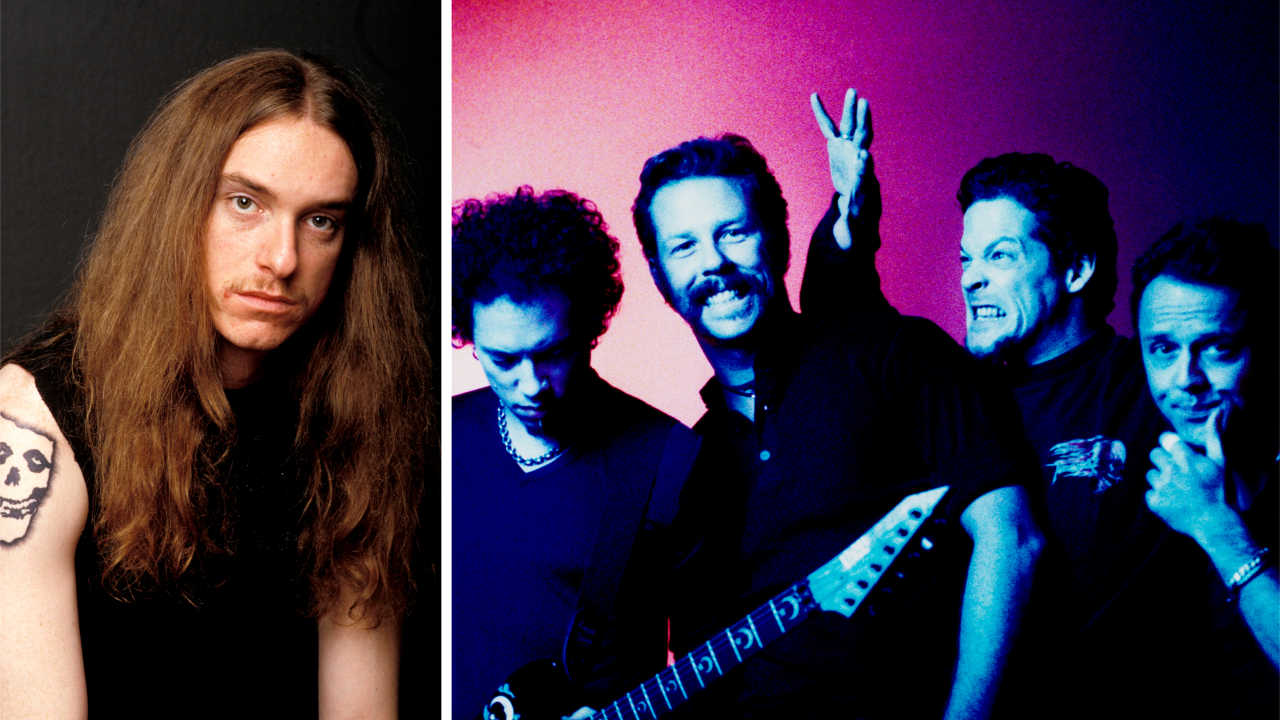Metallica's 90s era remains one of the most divisive and fiercely debated career points in all of metal. To many, the decade represents a time where Metallica loudly and proudly broke away from the pack, rewriting metal's rulebook while crafting some of their catchiest, most well-produced and most interesting work. To others, those years and the three studio albums they bore - 1991's Metallica, 1996's Load and 1997's Reload - marked the point where Metallica turned their back on the metal scene, chasing mainstream rock clout while abandoning the music that had made them a success in the first place.
In a 2009 interview with Metal Hammer's Mick Wall, Metallica frontman James Hetfield revealed what he thought beloved former bassist Cliff Burton would have made of it all. Burton brought another level of musicianship and musical intelligence to the Four Horsemen during their early days, his love of classical music famously influencing Metallica's direction as the 80s progressed. His death in 1986, the result of a horrific tour bus crash in Sweden, shook the band to its core.
After continuing their sonic evolution with 1988's ambitious ...And Justice For All, featuring Burton's replacement Jason Newsted, Metallica took a shocking left-turn for their fifth album, Metallica, otherwise known as The Black Album. Roping in producer Bob Rock, here was a more streamlined, more polished and more stadium-sized incarnation of the band, their thrash roots only visible through fleeting glimpses on tracks like Holier Than Thou. Load and Reload would take things even further, bringing in influence from grunge, alt rock and even the growing nu metal movement. It all took Metallica to further success, but outraged many diehard OG fans; Hetfield wasn't sure about much of the direction that Load and Reload in particular took the band in, and he strongly suspected that Burton would have agreed with him.
“I certainly would have thought there would have been some resistance, for sure," he mused. "I think The Black Album was a great album and I appreciate the fact that we did have the balls to do that and have Bob Rock to work with us. It had to be, it really did. You know, when I go back and I listen to …And Justice For All, it couldn’t have stayed on that path. We needed to bring in another set of trusted ears.
Despite standing by The Black Album itself, Hetfield imagined that Burton would have brought some different influences into play. "I think Cliff would have probably interjected some different stuff, getting his bass heard and some more musically challenging things," he added. "I would certainly think that the Load and Re-Load [era], I would have had an ally that was very against it all – the reinvention or the 'U2 version' of Metallica.
"There’s some great, great songs on there," he clarified, "but my opinion is that all of the imagery [Metallica's short hair, make-up and outlandish clothes] and stuff like that was not necessary. And the amount of songs that were written was… it diluted the potency of the poison of Metallica. And I think Cliff would have agreed with that.”

